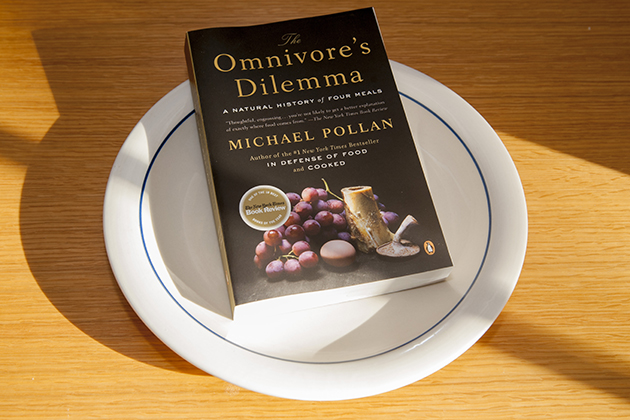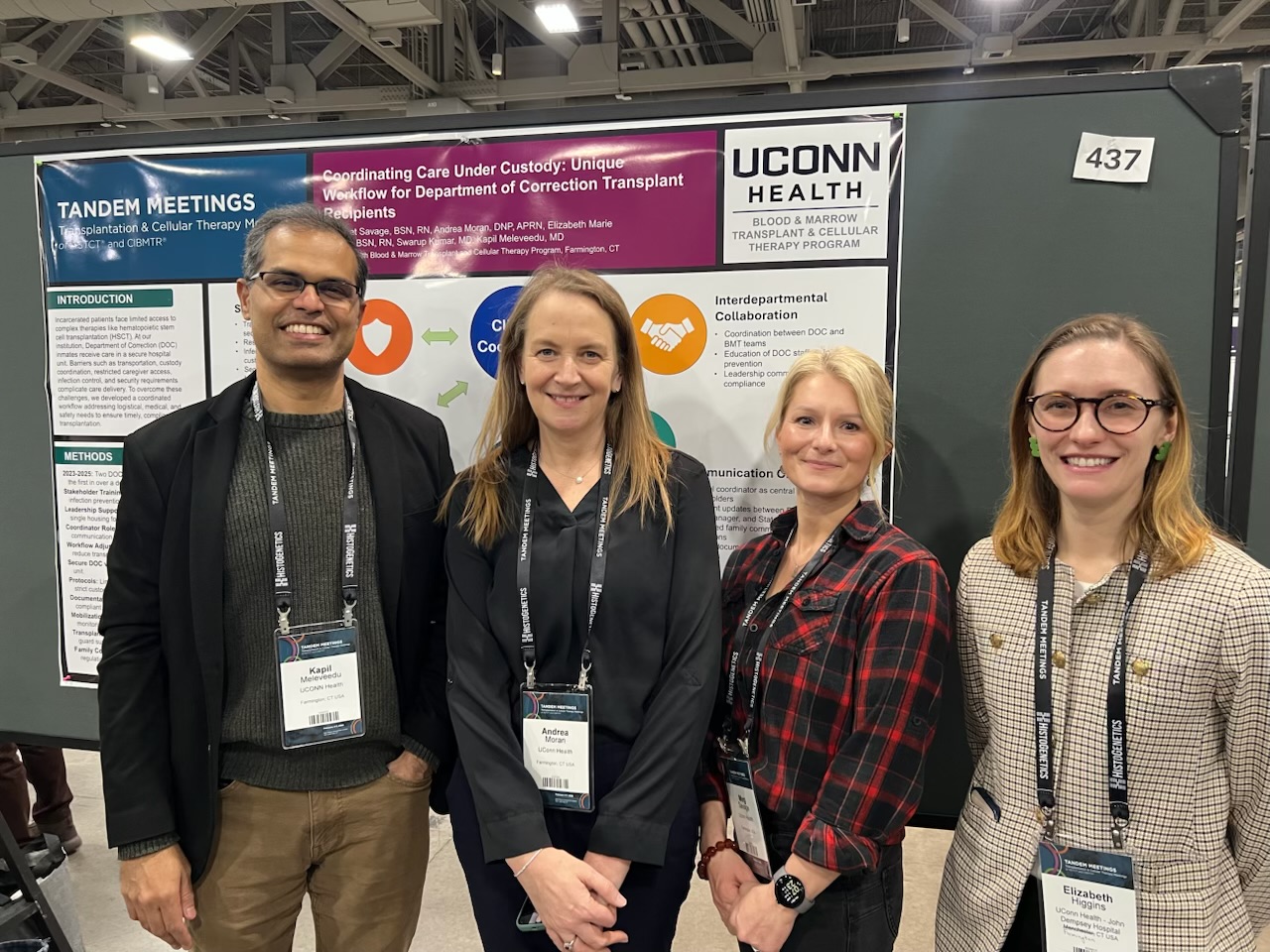UConn’s Dining Services serves 180,000 meals per week on our Storrs campus.
That astonishing fact is the simplest and most compelling argument for choosing The Omnivore’s Dilemma: A Natural History of Four Meals (2006) as the UConn Reads “A Book That Changed My Life.” We can trace the impact of these meals on the health, economy, environment, and culture not only of our own community, but also of the state, the nation, and the world. These meals become a metonymic representation of the larger impact of the American ways of eating – and how we can change those ways of eating for the better.
In The Omnivore’s Dilemma: A Natural History of Four Meals, journalist Michael Pollan takes a personal journey through the creation of different meals that he traces from their origins on the farm or in the woods to the finished food on the plate. He labels these different approaches to eating industrial, organic, and foraged (that is, entirely grown or gathered by himself). We follow him as he visits a cattle feedlot in Kansas, a small organic farm in Virginia, and the forests of northern California – Pollan covers a lot of territory both geographically and conceptually in tracing the origins of his meals.
The Omnivore’s Dilemma makes complex issues real and engaging through this personal approach. There are many ways for readers of varying interests to approach this book, for it presents an opportunity to explore the environmental, health, economic, spiritual, and aesthetic impact of the different ways that we eat. Each section of the book – a set of chapters devoted to each of the meals, from beginning to end – can be read on its own, or the chapters describing the meals themselves can be read in sequence. The book is, by turns, thought-provoking, funny, sad, and troubling. It is a call to action.
I’ve noted before that this year’s selection would be particularly difficult. Over the past two years, our readers certainly nominated books for the UConn Reads categories of “classic fiction” and “world literature” that were beloved and personally or culturally significant, but those nominations didn’t necessarily carry the emotional, spiritual, and ethical weight of “a book that changed my life.” Every single book on this year’s nomination list carried that weight and had to be carefully considered.
We are a community that is ready for a wide-ranging conversation about American ways of eating and their impact.
In the end, Pollan’s book seemed like a special match for our UConn community. We are, of course, a land-grant institution, and so significant teaching, research, and service takes place here that is tied to the agricultural economy and to food production.
We are, moreover, a campus passionately committed to the environment, and food production stands squarely at the intersection of humanity and nature. We are also passionately committed to human rights, and food justice is a profoundly important human rights issue both nationally and globally.
We are fortunate to have in Dining Services a national leader in the turn toward locally-sourced and organic foods, healthful meals, environmentally sound practices, and diverse cuisines that meet the dietary needs of our community, from vegetarian and vegan to kosher and halal. Moreover, in the past few years, the tremendous growth in organic farming and food production in Connecticut has had a profound impact on our state and the region.
I’ll end with another simple but telling fact. In the Student Union food court, the Wendy’s fast-food franchise was recently replaced by One Plate, Two Plates, which serves quick, healthful, and fresh meals. When I was in the Student Union last week, people were lined up three deep at the counter – it was by far the busiest of the food outlets. We are a community that is ready for a wide-ranging conversation about American ways of eating and their impact, and we have much to contribute to the ongoing national discussion sparked by The Omnivore’s Dilemma.
The UConn Co-op will carry The Omnivore’s Dilemma at a discount. The book is available in eBook format as well. To follow the UConn Reads conversation on Twitter, use the hashtag #UConnReads.



